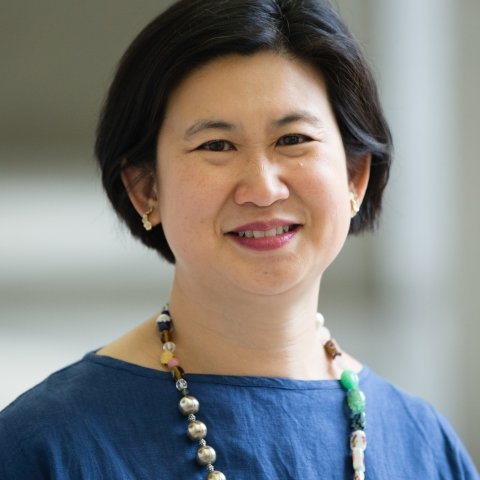Irene Wu
Former Fellow
Professional Affiliation
Adjunct Professor, Communications, Culture and Technology Program, Georgetown University
Expert Bio
Irene S. Wu is author of Forging Trust Communities How Technology Changes Politics (Johns Hopkins University, 2015), that featuring case studies of how both activists and governments have exploited the latest communications innovations toward their own political goals. Examples are from Brazil, China, Europe, and beyond, starting with the telegraph through social media. Her first book From Iron Fist to Invisible Hand: the Uneven Path of Telecommunications Reform in China was published by Stanford University Press. Dr. Wu is a senior analyst in the International Bureau of the U.S. Federal Communications Commission and teaches at Georgetown University, where she was the first Yahoo! Fellow in Residence. Dr. Wu received her B.A. from Harvard University and Ph.D. from Johns Hopkins University’s School of Advanced International Studies (SAIS). www.forgingtrustcommunities.com, ireneswu.com.
Wilson Center Project
Measuring Soft Power in International Relations
Project Summary
In the foreign policy literature, soft power begins with Joseph Nye’s definition that it is a country’s influence by persuasion or cultural attraction, not coercion or payment. Great soft power is manifest in successful diplomacy. The reasons for successful diplomacy are many; they include great military power (coercion), great economic power (payments), and great diplomatic skill. Soft power is the term that captures everything else. This catch-all quality to the concept is reflected in the research to date. For many scholars the soft power is essentially cultural power, which includes diverse elements such as values, education, media, and religion, none of which are easy to define or measure. The focus of the soft power literature, reflecting its roots in the study of military and economic power, is on the country projecting the power. Much less attention is paid to the characteristics of the country subject to soft power influence. Concepts from the fields of political communication and the study of trust and social capital can address these weaknesses. I propose that soft power can be measured both in conventional and unconventional terms, drawing on research in foreign policy, political communication, and trust and social capital. Conventional measures include international exchange in migrants, visitors, education, and culture. In the long run, I will create a dataset of soft power measurements based on transparently collected data that can be repeated over time. The unconventional measurements will explore how digital media can be tracked, measured, and understood to give insight into a country’s soft power.
Major Publications
- Forging Trust Communities: How Technology Changes Politics (Johns Hopkins University, 2015)
- From Iron Fist to Invisible Hand: the Uneven Path of Telecommunications Reform in China (Stanford University Press, 2008)
- "Who regulates phones, television and the Internet? What makes an communications regulator independent and why it matters" Perspectives on Politics December 2008, 6(4): 769-783
Insight & Analysis by Irene Wu
- Past event
- Society and Culture
Cultural Values in the Political Economy and the Case for Multilateralism
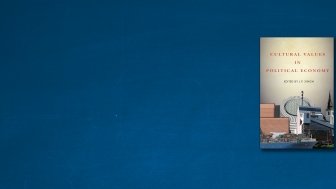
- Past event
- Geoeconomics
Southeast Asia’s Anglophone Elites and U.S. Foreign Policy
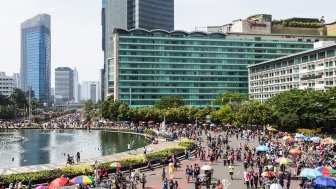
- Blog post
- Strategic Competition
Irene Wu: Measuring Nations' Soft Power
- By
- Irene Wu
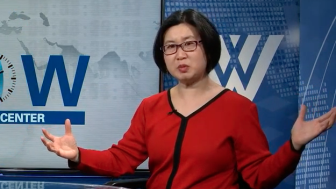
- Past event
- Geoeconomics
Asserting Taiwan’s International Space: The Challenges Ahead for Taipei’s Leadership
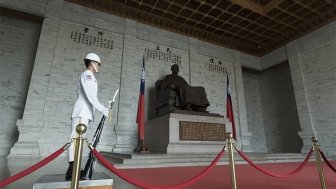
- Past event
- Society and Culture
Soft Power Amidst Great Power Competition

- Publication
- Society and Culture
Soft Power Amidst Great Power Competition
- By
- Irene Wu
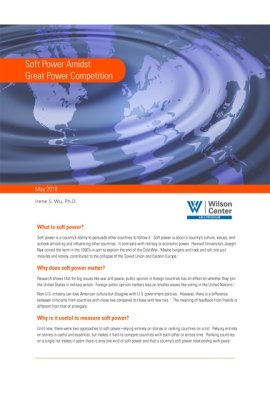
- Video
- Society and Culture
Can Soft Power Be Measured?
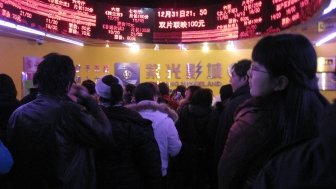
- Past event
- Science and Technology
From Bytes to Bucks: Soft Power, Policy, Tech, and Culture

